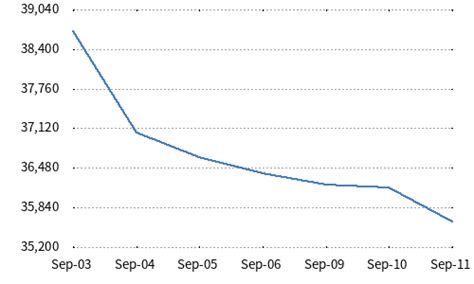Japan’s Nikkei index recently witnessed a remarkable surge, closing 6% higher than the previous session. The upswing caught the attention of investors and financial analysts alike, sparking discussions about the factors driving this impressive market recovery.
Market Dynamics
The Japanese stock market has been experiencing fluctuations in recent months, influenced by a variety of domestic and international factors. From economic indicators to global events, every development plays a crucial role in shaping investor sentiment and market trends.
As the Nikkei soared to new heights, experts delved into the underlying dynamics that fueled this surge. While some attributed it to positive economic data releases, others pointed towards external factors such as geopolitical developments or shifts in global trade patterns.
Expert Perspectives
According to renowned financial analyst Sarah Thompson, “The recent uptick in Japan’s Nikkei reflects a broader sense of optimism among investors. We are seeing renewed confidence in the market’s resilience and potential for growth.”
Thompson further emphasized that while short-term fluctuations are expected, the overall trajectory indicates a positive outlook for Japan’s economy. This sentiment was echoed by several industry experts who highlighted the importance of monitoring key indicators to gauge future market movements accurately.
Global Impact
The performance of Japan’s Nikkei holds significance beyond its borders, with implications for international investors and multinational corporations. As one of Asia’s leading economies, Japan plays a pivotal role in shaping regional market trends and influencing investor decisions worldwide.
Amidst ongoing geopolitical uncertainties and economic challenges across various regions, the surge in Japan’s Nikkei serves as a beacon of hope for many stakeholders seeking stability and growth opportunities in volatile times. The resilience displayed by the market sends a positive signal to both domestic and foreign investors regarding Japan’s economic prospects.
Future Outlook
Looking ahead, experts are closely monitoring how external factors such as trade policies, currency fluctuations, and global economic conditions will continue to impact Japan’s Nikkei performance. While short-term gains can be encouraging, sustaining long-term growth will require strategic planning and proactive risk management strategies.
As investors navigate through evolving market landscapes characterized by uncertainty and volatility, staying informed about emerging trends and regulatory developments remains paramount. By leveraging insights from industry experts and conducting thorough research analysis, stakeholders can make well-informed decisions aligned with their investment objectives.
In conclusion,
Japan’s Nikkei index has emerged as a focal point of optimism amidst challenging times,
with its recent surge reflecting both domestic resilience
and global interconnectedness within today’s dynamic financial ecosystem.
This upward momentum signifies more than just numerical figures on a screen;
it embodies collective confidence,
strategic foresight,
and unwavering belief in brighter days ahead for Japan’s economy and beyond.



Leave feedback about this